Ant trails. Depending how you look at them, they’re tiny living rivers, unending highways of industry, pseudopods of super-organsisms, or just a bunch of half-brained haplodiploid hymenopterans with a fetish for each other’s footprints. They are viewed as a product of sophisticated determination, and simultaneously one of mindless chance, but in everyone they stir a powerful notions of combined effort and destiny.
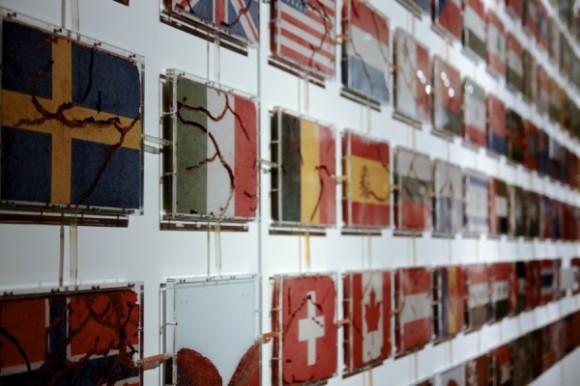
Yukinori Yanagi, The World Flag Ant Farm, 1990
In the late 80’s, Yukinori Yanagi began working with ants, creating boxes filled with colored sand to mimic flags of various nations. Into these he would release live ants, who dug into them (like classic ant farms), producing fractures, and even exchanging sand between flags via tubes.
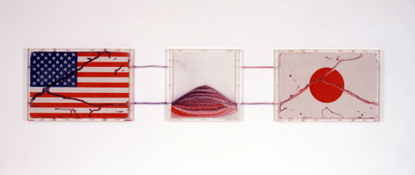
Yukinori Yanagi, Pacific, 1997
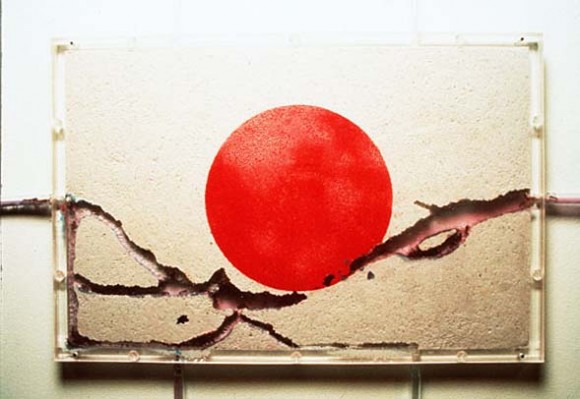
Yukinori Yanagi, Pacific, (detail) 1997
The stalwart ants dilligently burrow into potent symbols of nationalism, while at the same time are completely oblivious of the artificial borders and barricades those symbols hope to convey. I would have loved to have seen these works in person.
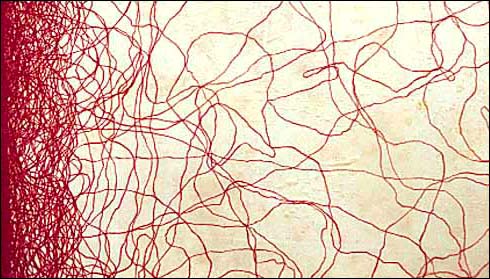
Yukinori Yanagi, Wandering Position, 1998
But it’s his Wandering Position series that most captivates me. A single solitary ant is let loose in a large rectangular enclosure. Following it with a wax crayon, Yanagi illuminates the lonely life of a tiny lost soul, penned in by unseen forces, yet never giving up. They’re powerful pieces, especially when done in the context of incarceration, such as his installation at Alcatraz in 1996.
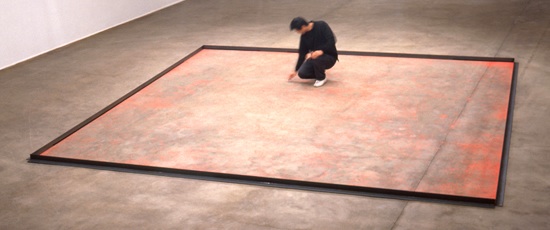
Yukinori Yanagi, Wandering Position, 1997
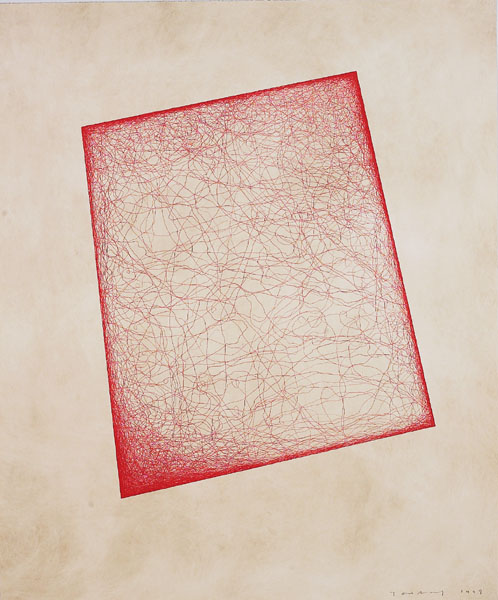
Yukinori Yanagi, Wandering Position, 1997
Mostly I find myself wondering what kind of ant it was. Not sure why that matters to me, but I do think different species of ants would have produced vastly different trail-based artworks.
Which brings me to perhaps a more whimsical use of the meanderings of ants (and other insects). Dutch design firm Edhv used a webcam hooked up to open source C++ script that records the movements of individual insects, assigning various colors to directions. Objects placed in the insect’s paths helped direct movement, but mostly it was up to the organism itself. Different species of insects created different patterns using the same obstacle course. Once a certain distance was reached, the work was declared finished, and a poster printed depicting their movements.
The final results (mostly used with woodlice and house crickets) are beautiful works countering the living force of the insects with utopian synthetic designwork. The insects clamber between logos, spelling out their own world between the lines of humanity.
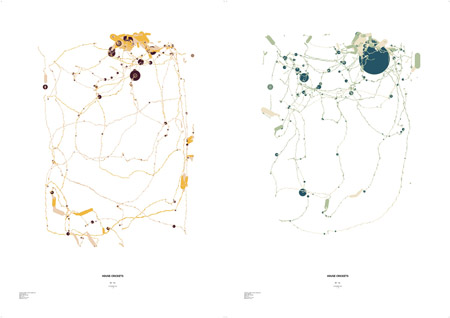
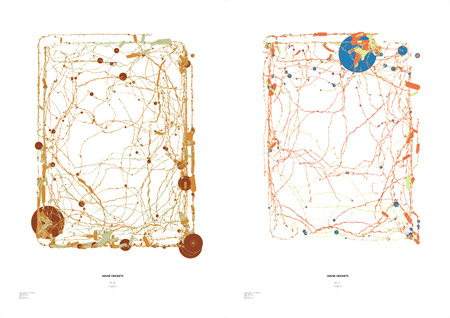
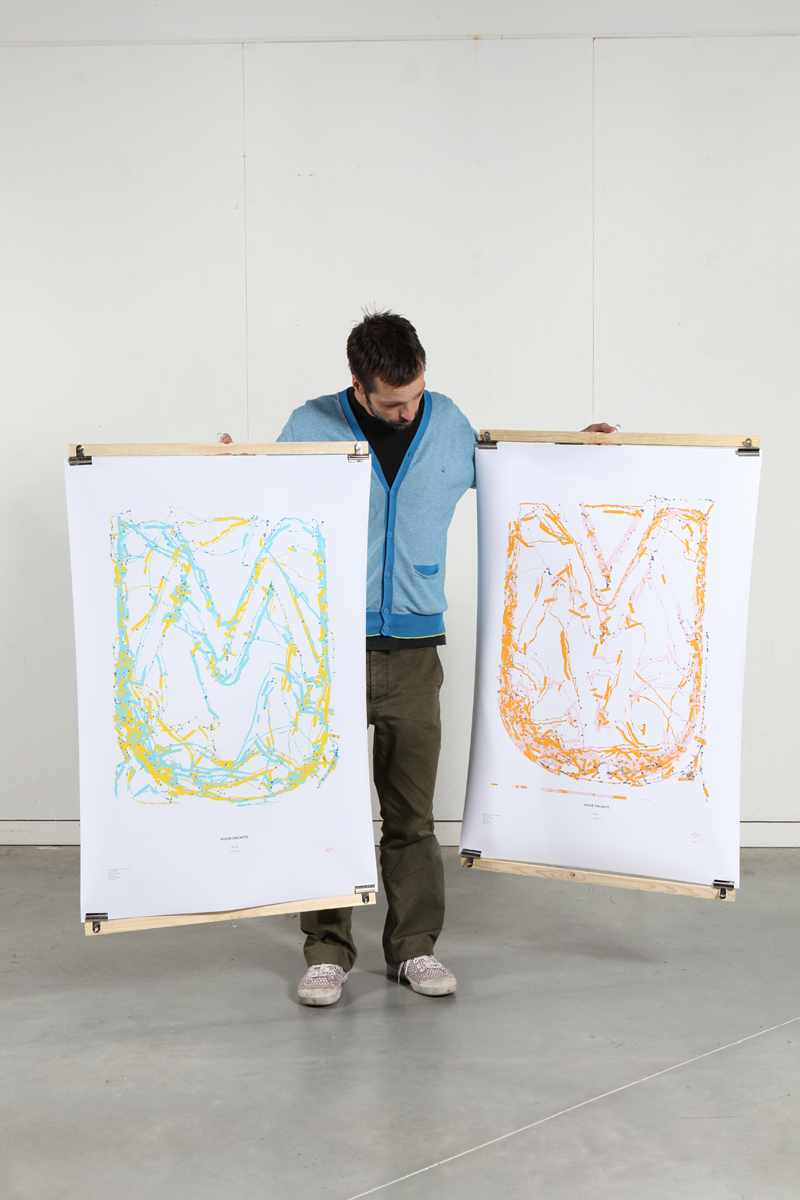
The next year Edhv went one dimension better, turning a solitary ant (again, what kind? can anyone tell?) loose on a tiny model of a chair. The ant’s movements were recorded as a computer model, which was then 3D-printed to create the ‘Debug Chair‘, a physical manifestation of one ant’s journey through the perplexing world of human design.
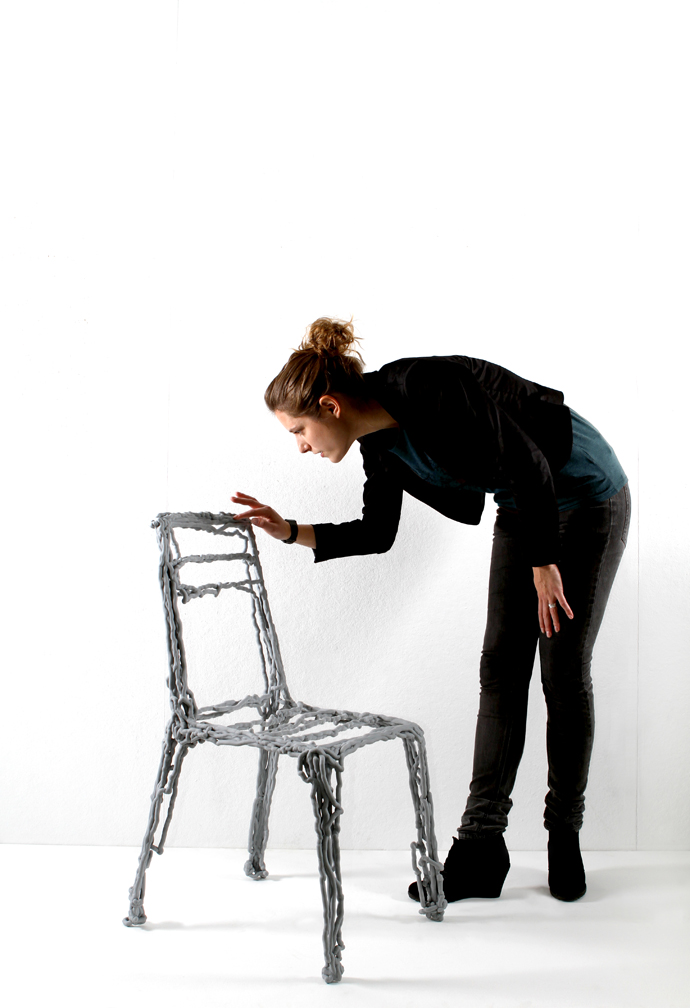
Debug Chair by Edhv and an uncredited ant.
Neat! Perhaps for their next creation they can make an Eciton bivouac sofa. ![]()
